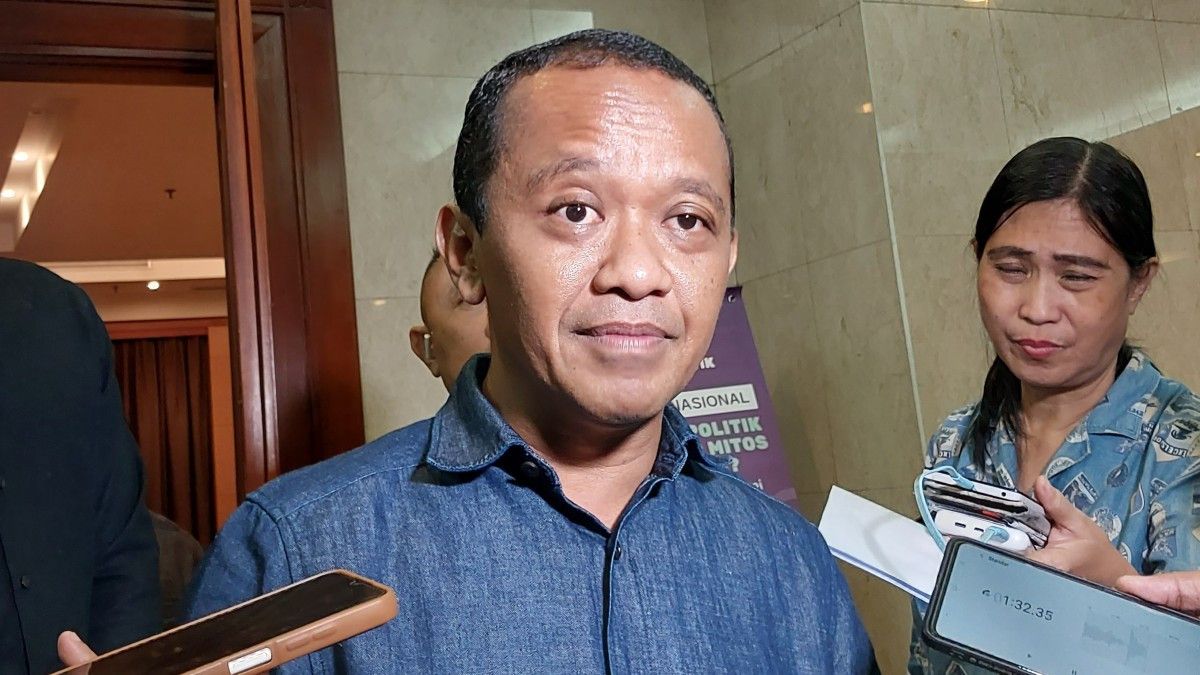JAKARTA - Investment Minister/Head of the Investment Coordinating Board (BKPM) Bahlil Lahadalia views that Indonesia cannot be anti-foreign companies that invest in the country.
With the investment from foreign companies, it will accelerate the downstream process or strategy to increase the added value of commodities as always echoed by President Joko Widodo.
This was revealed by Bahlil when responding to the results of a survey by the UI Political Psychology Laboratory regarding polarization ahead of the 2024 General Election.
"We want to be anti-foreign? If we don't want foreigners to enter, it means that our country will slow down the downstream process. Our state budget is not used to build the industrial industry. The government is tasked with building regulations," said Bahlil, Sunday, March 19.
Bahlil also responded to the anti-foreign and "asseng" narrative in the placement of labor in nickel processing and refining facilities. Bahlil admitted that nickel smelters which are one of the pillars of downstreaming in Indonesia are indeed controlled by foreigners. This is because resources in Indonesia have not been able to handle this.
"First, we don't have the technology yet. Second, smelters are expensive. Domestic entrepreneurs are not aware of this because they must have an external network. Third, our national banking does not want to pay for a smelter. So, what happens is that we bring the technology from outside and we bring the person from outside," explained Bahlil.
However, Bahlil emphasized that the majority of mining business license owners in Indonesia are domestic companies
"People say that all of our mines are controlled by foreigners, the IU (business license) of this republic, 80 percent of which own domestically. What do foreigners control? The smelter. So, it is not true that people say our resources are controlled by foreigners," he continued.
For information, the UI Political Psychology Laboratory conducted a survey of public opinion regarding the remaining political polarization in 2019 which still exists ahead of the current 2024 General Election.
The results of this survey show that the community is polarized into 2 groups, namely cluster 1 which is pro-government with a proportion of 57 percent and cluster 2 which does not side with the government or anti-foreign and "asseng" with a proportion of 43 percent.
In detail, cluster 1 is a pro Jokowi group that is relatively secular in a moderate direction, satisfied with the government's performance, relatively not prejudiced against foreign economic forces and "asseng".
Meanwhile, cluster 2 has a group in the political ideology of religious dimensions. Where, they believe that leaders must be Muslim or religious, public policies based on religion, to punitive sanctions against blasphemers, sharia regulations get a high endorsement).
This cluster 2 also believes in the conspiracy theory that the government is a conspiracy of foreign and "asseng" forces. This cluster expresses dissatisfaction with the policies and results achieved by the government.
The UI Political Psychology Laboratory public opinion survey regarding the remaining polarization of the 2019 presidential election was held from February 6 to February 28, 2023.
In this survey, the analysis techniques used include item-response theory (IRT), compound principal (PCA), and latent clarification analysis (clustering) using the method of measuring Sigma Distance. The total respondents were 1,190 Indonesian citizens aged 17 years and over who came from 33 provinces.
The English, Chinese, Japanese, Arabic, and French versions are automatically generated by the AI. So there may still be inaccuracies in translating, please always see Indonesian as our main language. (system supported by DigitalSiber.id)









